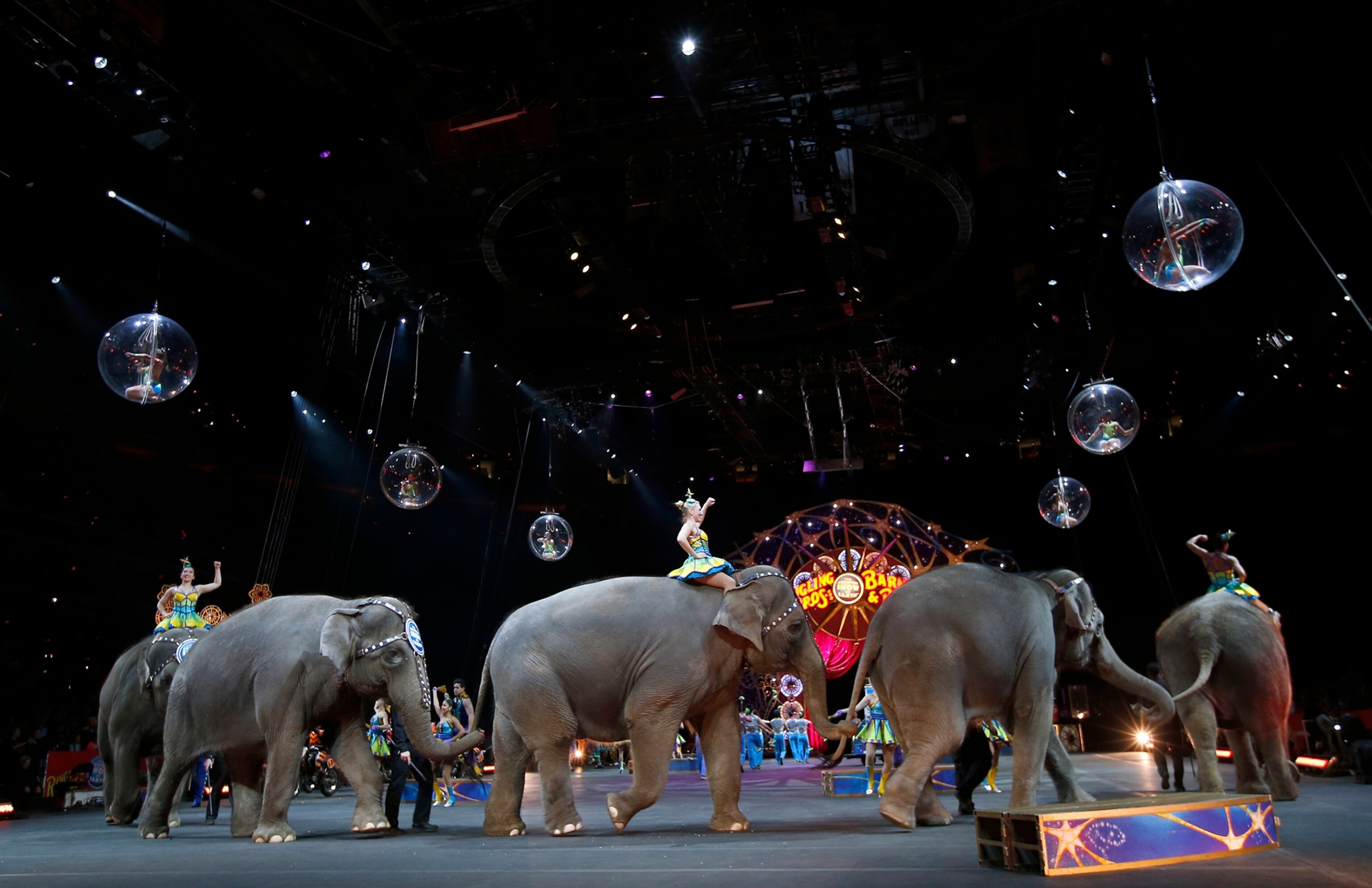
Ringling Will Retire Circus Elephants Two Years Earlier Than Planned
In May, the performers will join other elephants at the company’s conservation center in central Florida.
Early in May, 11 female elephants that together have spent decades on the road for circuses will step off train cars and super-semi trucks for the last time into retirement in central Florida. Most will be returning to family and friends. (Read "Here's Where Ringling Bros. Is Sending Its Circus Elephants to Retire.")
Ringling Bros. and Barnum & Bailey circus announced Monday that it would speed up the performers’ retirement by two years because it realized it could. After their final performances on May 1, in Wilkes Barre, Pa., and Providence, R.I., the elephants will live out their lives at Ringling’s Center for Elephant Conservation (CEC), on 200 remote acres not far from Disney World.
They will join 29 other elephants that were retired earlier, or that now do mostly reproductive work. (Some lack—as all adult males do—the temperament to perform.)
The circus was accused by animal rights activists for years of abusing its elephants, and many municipalities responded to that pressure by adding restrictions. Ringling's CEO, Kenneth Feld, said in an interview with Nat Geo that the circus has won every lawsuit against animal rights organizations but "can't fight city hall."
Activists who hailed last year’s decision had wondered why the elephants couldn’t be retired sooner. Feld told me last spring, “It’s not like moving a bowl of goldfish.”
Stephen Payne, vice president of corporate communication for Feld Entertainment, which owns the circus, insisted “no external factors” influenced today’s decision.
“When we announced last year that we would retire the elephants by 2018, we basically drew a line in the sand, then started to work backwards,” said Payne. “We were surprised after a lot of hard work by the center staff that we had the barn space, the pasture space, and the water resources for moving the elephants sooner rather than later.”
The Humane Society’s president, Wayne Pacelle, praised it on his blog as “a second wave of good news” from Ringling. “For wild animals whose natural habitat is outdoors, life in a traveling show is filled with unending misery … all so they can perform silly tricks.”
Arriving at the Center for Elephant Conservation in May, while the scrubby palmetto are blooming white, will be elephants ranging in age from 5 to 47. The youngest, April, after a year on the road, will be returning to her mother, Alana (named for the middle daughter of company owner Kenneth Feld), and to her father, Charlie, a seasoned stud whose latest mate is pregnant and due in September.
“You could say it’s not a retirement” for most of the performers, said Payne, “but a family reunion. And it might be a good excuse for a party.”
Ringling will begin its 146th season in July with, Payne said, its usual horses, lions, tigers, dogs, camels and, on one unit, kangaroos. “We would not,” he said, “foreclose other species” in its acts, and he reminisced that the circus not long ago included a large African porcupine named Percy.
The conservation center will continue to mate its Asian elephants for the purpose of growing its herd, the largest in the Americas, although it is not now open to the public. Scientists also use Ringling elephants to study the species and to research why elephants suffer cancer so rarely. Studies published in October say elephant DNA holds 20 copies of p53, an important tumor-suppressing gene, compared to only one in the DNA of humans and other mammals.